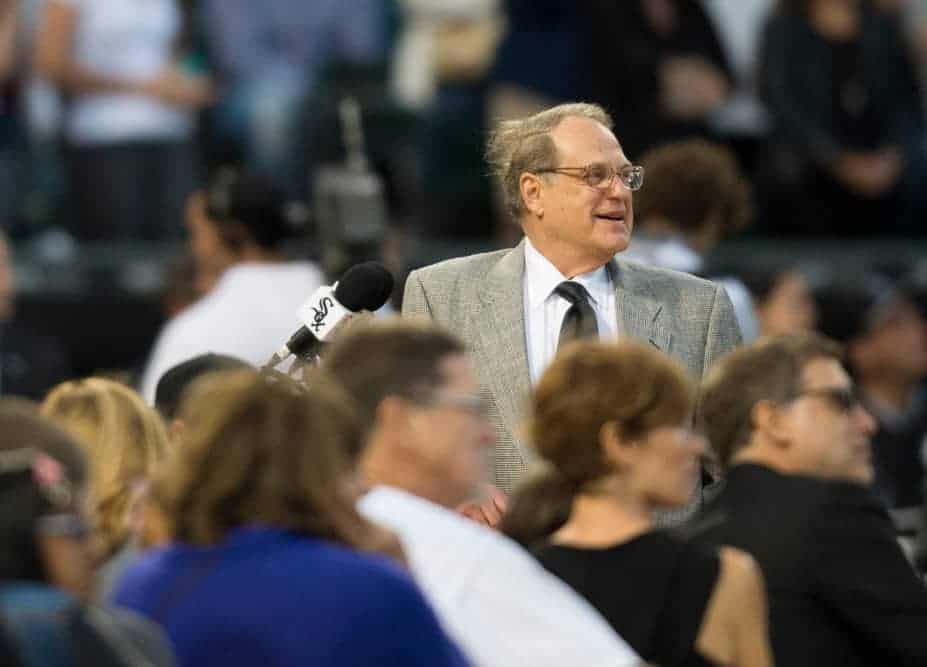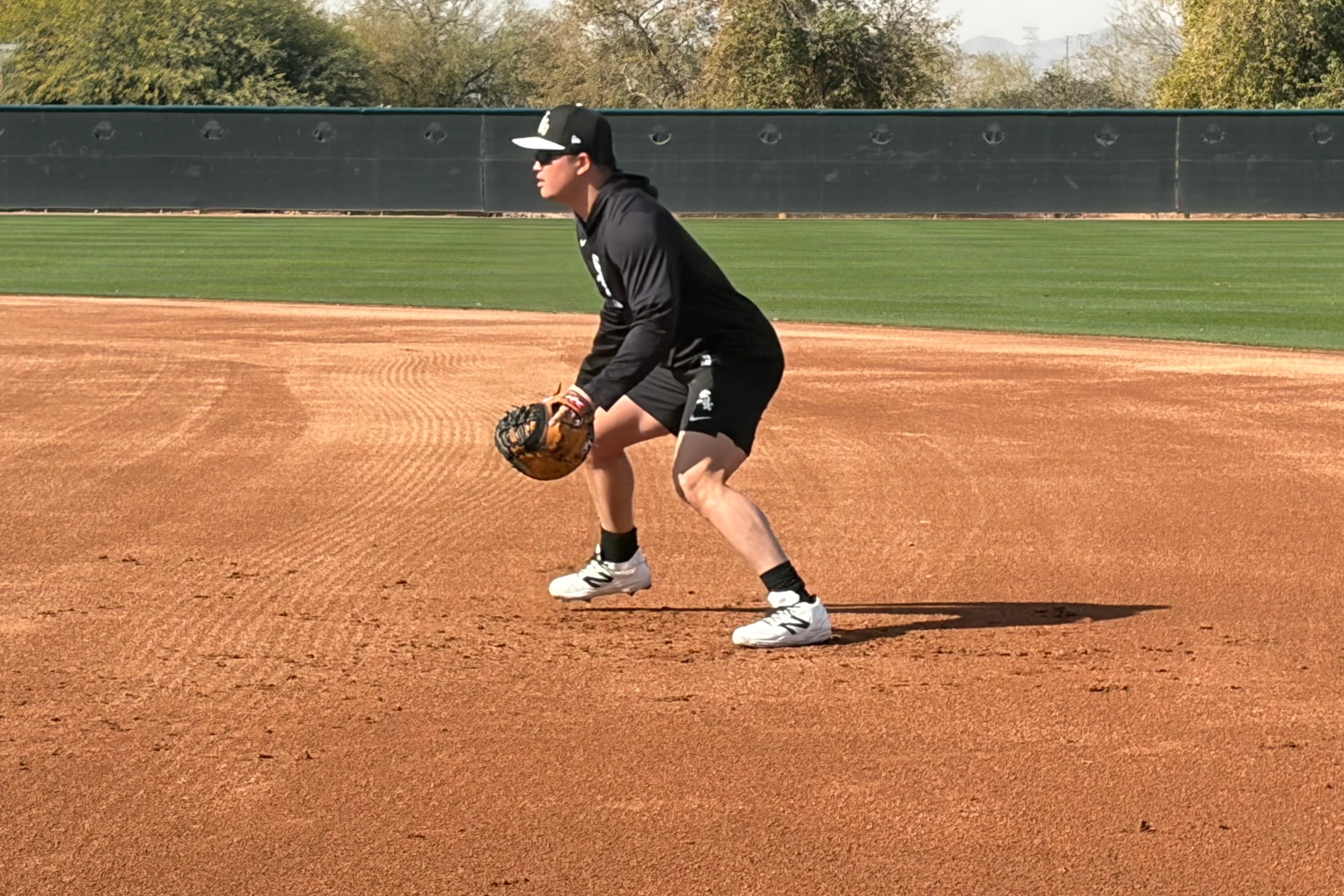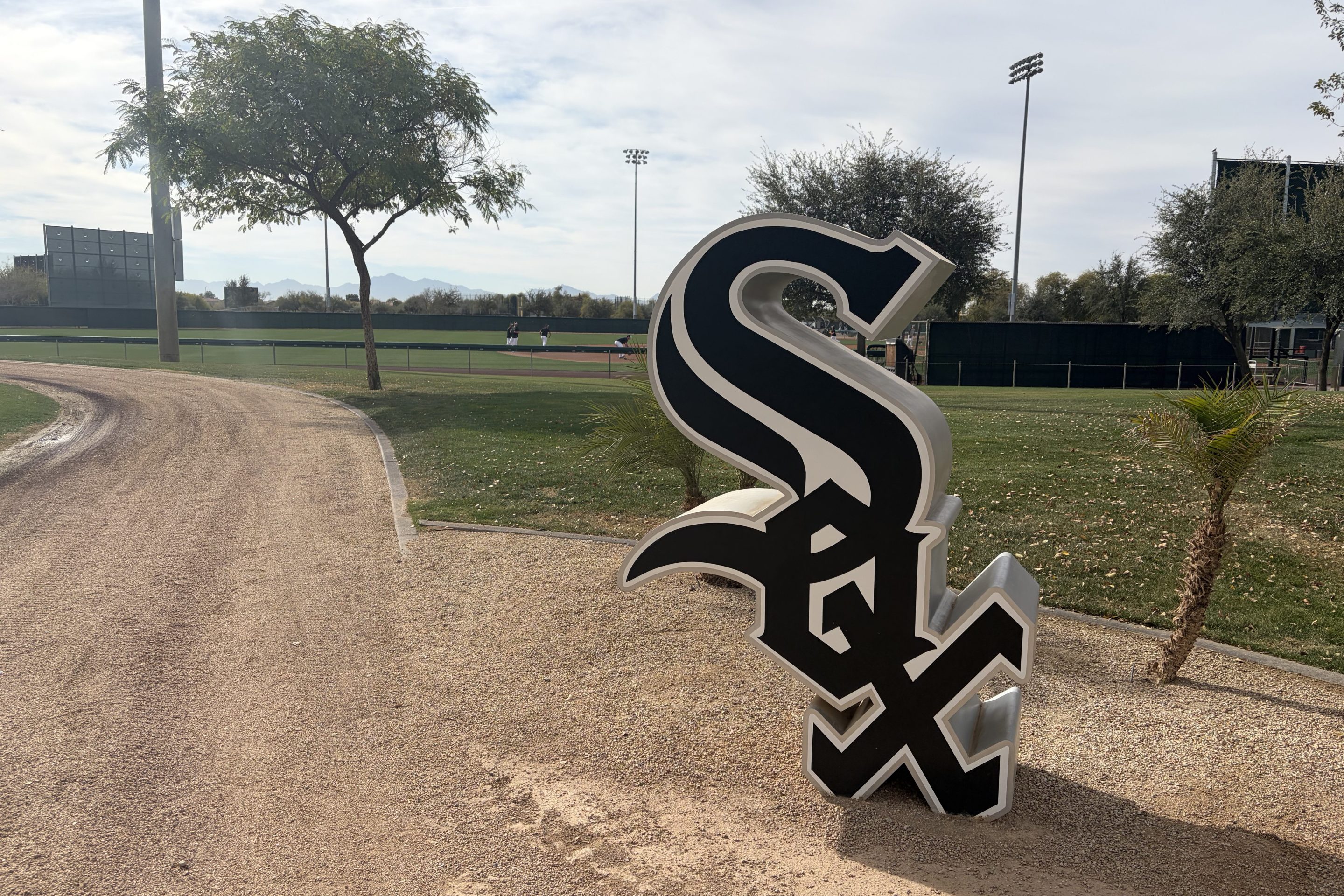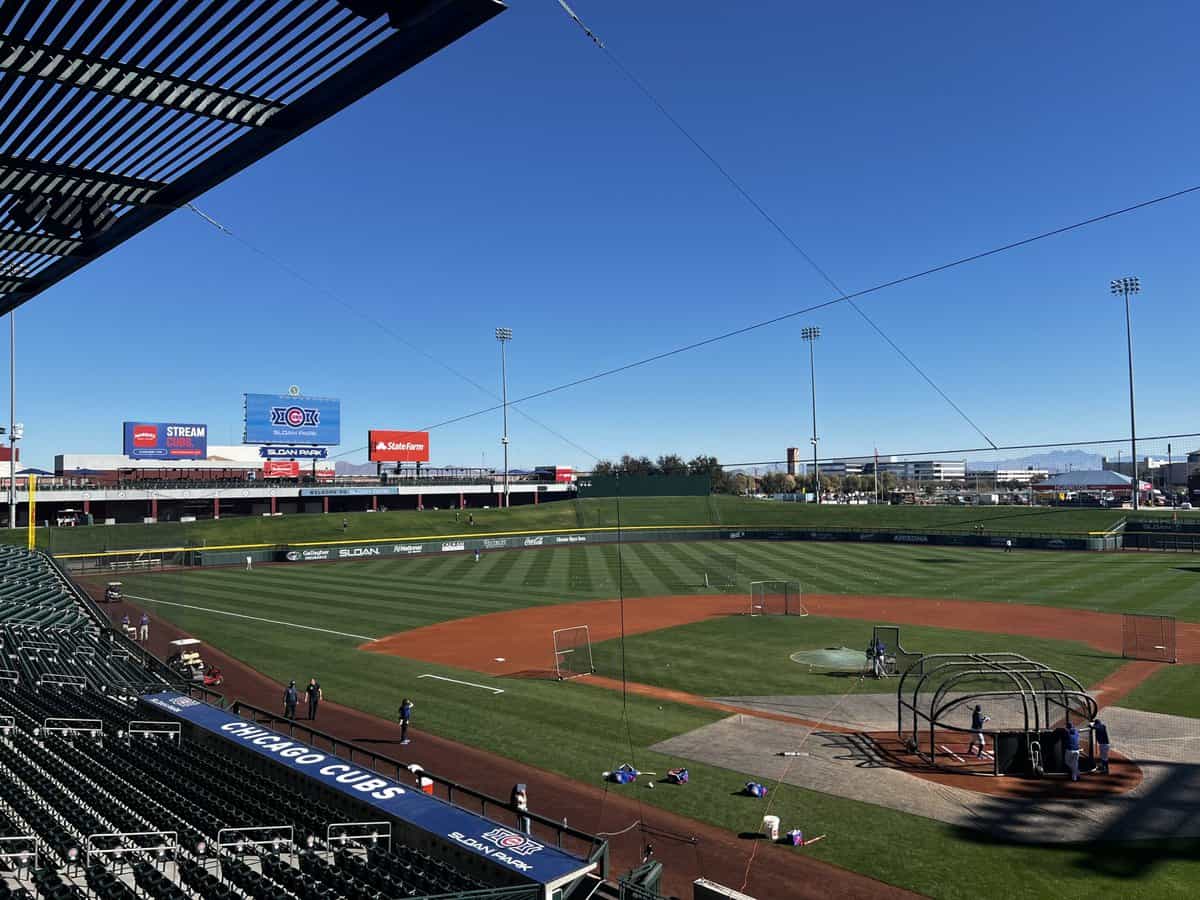On January 29, 1981, American League owners approved the sale of the Chicago White Sox to a group led by Jerry Reinsdorf and Eddie Einhorn. Chicago Tribune columnist Phil Rosenthal saw fit to mark the anniversary by recounting the process. I encourage you to read the article for the blow-by-blow history of the events of 1980 and 1981; a brief summary follows.
Back in 1980, Bill Veeck made no bones about the fact that his group didn't have enough resources to stay in baseball. That August, he agreed to sell the Sox to Ohio shopping mall developer Edward DeBartolo. Though the sale wasn't finalized by the end of the season, the last series of the year served as a farewell to the man who had owned the team the past five years.
Three weeks after the season ended, AL owners (including Bud Selig) rejected DeBartolo's bid, with reported concerns involving DeBartolo's ownership of racetracks. DeBartolo worked to try to get approved again in December, to no avail. During this time Veeck continued to run the team, and, assuming DeBartolo would eventually get approved, he signed free agents Jim Essian and former All-Star leadoff hitter Ron LeFlore.
DeBartolo eventually gave up on his baseball dreams. Over the next decade, his family won multiple Super Bowls with the San Francisco 49ers and a Stanley Cup with the Pittsburgh Penguins. Veeck turned to a group led by a man he'd rejected that summer, Jerry Reinsdorf.
Reinsdorf was a 44-year-old real estate lawyer. Before the DeBartolo bid, he gave an interview to longtime Tribune sports columnist Dave Condon. Rosenthal looks back on that interview with the perspective of someone who's seen how Reinsdorf's operated, and it includes a beauty of a quote.
Chicago Tribune columnist David Condon introduced the Northwestern Law graduate to sports section readers in July 1980 as a “mystery money man making a high-priced bid to buy the White Sox … and a self-identified ‘baseball fanatic who grew upon the shadows of Brooklyn’s Ebbets Field and occasionally played stickball with Duke Snider.’ ”
Reinsdorf said he would advise his group’s limited partners that “there’s just not a lot of money to be made with investments like this,” which he cast as more of a civic duty project.
“I’ve always looked at the ownership of a baseball franchise as a public trust, maybe even a charitable thing,” Reinsdorf told Condon. “I’m serious about that. I never did forgive Walter O’Malley for moving the Dodgers from Brooklyn to Los Angeles.”
That "charitable thing" Rosenthal notes, has increased in value: "Forbes in 2020 estimated the White Sox, purchased in 1981 for the equivalent today of $59.3 million, to be worth $1.65 billion." Beyond that, within five years, the heartbroken Ebbets Field mainstay was threatening to move the team to Tampa Bay if he didn't get a publicly-funded stadium in suburban Addison. That didn't happen, but the threat successfully led the state of Illinois to fund a new park next door to old Comiskey, tearing down a neighborhood to do so.
By the time the new park opened in 1991, Reinsdorf had established what kind of owner he would be. Initially, he gave fans hope of using capital to bolster the talent on the field, signing Carlton Fisk during spring training 1981, and nabbing Floyd Bannister, the top free agent pitcher after the 1982 season. Those moves, along with the young talent Veeck and Roland Hemond had assembled between 1975 and 1980, led in 1983 to the first postseason appearance by a Chicago baseball team since 1959. After disappointing seasons in 1984 and 1985, Reinsdorf's quirks became more evident, shunting Roland Hemond aside to make...questionably equipped friend Ken Harrelson GM. Around the same time, Reinsdorf established his combative stance towards the players, a stance that manifested in collusion, the 1994 lockout, and a history of pennywise and pound-foolish free agent signings while, with the notable exception of the Albert Belle contract in 1996, avoiding the top of the market again after the Bannister signing,
Back in 1980, Reinsdorf drew a contrast between himself and Walter O'Malley. It's a fair contrast: in the years O'Malley and, later, his son Peter, owned the Dodgers (1950-1998), the Dodgers won NL pennants in 1952, 1953, 1955 (also winning the Series), 1959 (sigh), 1963, 1965, 1977, 1978, 1981, and 1988. Ten pennants and six World Championships in 48 years.
Jerry Reinsdorf has owned the Chicago White Sox for 40 seasons so far. During that time, the team has won one AL pennant, back in 2005, winning the Series that year. If you measure the White Sox ownership groups by pennants won, Reinsdorf is tied with Bill Veeck at one, a mark Veeck achieved in the first of his non-consecutive seven-plus seasons owning the team. Both trail the Comiskey family, who won four AL pennants (1901, 1906, 1917, and, um, 1919) in 58 seasons, including two Series winners.
Reinsdorf's teams have had more success that the Sox had under the Allyn brothers. John and Art Allyn fielded several contenders, but won zero pennants in fifteen seasons after buying the team from Veeck in June of 1961. In forty seasons, we can say Jerry Reinsdorf has provided White Sox fans with more AL pennants than the least successful ownership group in team history while the value of the team to his partnership has increased to $1.65 billion.
The O'Malleys are gone from baseball, having sold the Dodgers to Fox in 1998. Actually, that's not true, not any more. Walter O'Malley's grandson Peter Seidler became the chairman of the San Diego Padres in November after initially buying into the team in 2012. Watching what his franchise is doing, in a smaller market than Chicago, represents continuity with his family's long history in the game, much as watching what the White Sox are doing represents continuity with the past forty seasons under Jerry Reinsdorf.
I imagine Jerry still dislikes the O'Malley family, but for different reasons than he had when he was a young man.
(Photo by Paul Bergstrom/Icon Sportswire)






